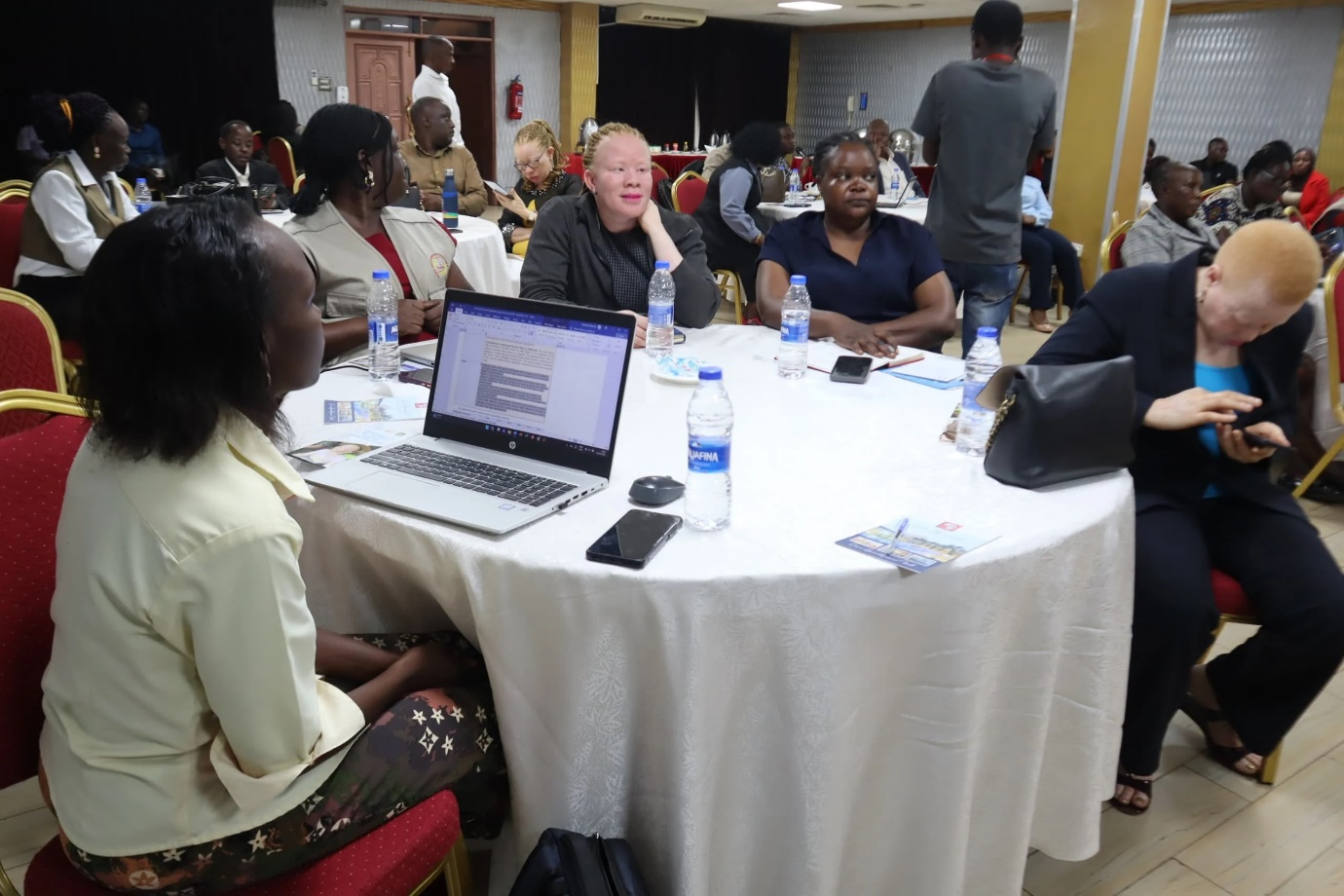By Fidel Boy Leon
In the heart of Uganda’s inclusive growth strategy lies a powerful principle: no one should be left behind. This vision, echoed through frameworks like the Parish Development Model (PDM), Vision 2040, and the Third National Development Plan (NDP III), is now being reinforced by a major national initiative to promote the full inclusion of persons with disabilities (PWDs) across all levels of development.
On July 25, the National Union of Disabled Persons of Uganda (NUDIPU) launched a three-year disability inclusion programme aimed at expanding the participation of PWDs in social services, governance, and economic empowerment.
But this is not just an NGO project, it is a partnership between government and civil society, woven into the fabric of Uganda’s broader development agenda.
“We have membership in 146 districts and work with 17 national organisations of persons with disabilities,” said Esther Kyozira, NUDIPU’s Chairperson. This programme is designed to ensure that all categories of persons with disabilities participate fully.
NUDIPU’s new programme is a deliberate step toward turning policy commitments into tangible impact. It reinforces Uganda’s long-standing pledge to leave no one behind by aligning with key frameworks such as the Persons with Disabilities Act, the National Policy on Disability, and the UN Convention on the Rights of Persons with Disabilities (UN CRPD).
Most importantly, it integrates disability inclusion into the heart of the Parish Development Model (PDM), Uganda’s flagship strategy for grassroots socio-economic transformation.
“In Uganda today, if you mention PDM, people say you get one million and you become rich. “But we must ensure persons with disabilities are not left behind,” Kyozira emphasised.
By embedding disability rights into these high-level initiatives, the programme seeks to translate policy into tangible benefits for PWDs, whether it’s access to capital, public services, or representation in decision-making.
While the programme has a national mandate, it will prioritise four underserved districts of Nebbi and Pakwach in West Nile and Amudat and Nabilatuk in Karamoja.
These areas have long-faced barriers to full inclusion, not just because of remoteness, but due to deep-rooted social exclusion and limited disability-specific programming.
“We’re glad to have local government leaders already on board,” Kyozira said.
“When we engage your districts, we shall request your full support to ensure that the rights of persons with disabilities are realised and policies are put into action.”
A standout component of the programme is its focus on marginalised groups within the disability community, particularly persons with albinism, who often fall through the cracks of development initiatives.
“In places like Karamoja and West Nile, persons with albinism are rarely identified or included in planning. “Yet they face serious health risks, including skin cancer,” Kyozira noted. “That’s why this programme will support mobilisation and identification so they can access critical health services and advocacy.”
What sets this programme apart is its collaborative approach to driving inclusion. NUDIPU is fostering a model of shared leadership, where every actor plays a defined role in delivering results. Local governments are being empowered to embed disability considerations in service delivery at the grassroots. Line ministries are being engaged to integrate inclusive planning into national policies.
Most critically, Organisations of Persons with Disabilities (OPDs) are not just participants, they are central drivers of advocacy, implementation, and accountability. This is how systemic change takes root.
Through mechanisms like the Directors Forum, the programme will monitor progress, troubleshoot challenges, and amplify the voices of persons with disabilities over its three-year duration.
“This is a three-year programme, we’re not going anywhere,” Kyozira assured attendees at the launch.
We will keep updating you as we progress. Let’s work together to make Uganda inclusive for all.”
As Uganda accelerates toward the goals of Vision 2040 and NDP III, it must carry every citizen along that journey, including the more than 12% of the population living with a disability.
This initiative proves that inclusion is no longer an afterthought but is central to the country’s development ethos.
“No Ugandan should be left behind…not in policy, not in budgeting, and not in practice,” Kyozira concluded.


